1878-1929
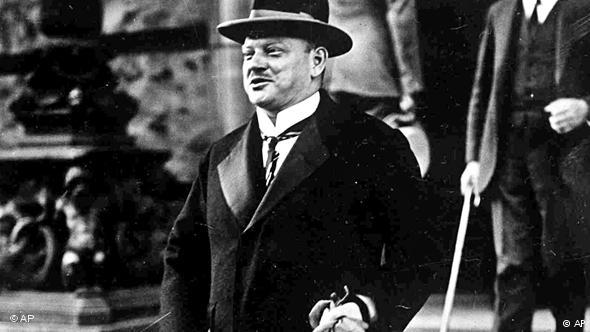
After the turmoil of 1918 -23, liberal constitutional democracy
survived in Germany, that is until the disastrous Wall Street Crash of of 1929. These years became known as the“Golden Years” of the Weimar Republic and were largely the result of the work of Gustav Stresemann.
Economic and political stability returned to the nation. This was largely due to the policies of Gustav Stresemann, improving Germany’s situation both economically and politically.

1878-1929
German liberal politician, leader of the German People’s Party (DVP)
Served as Chancellor (Aug 1923-Nov 1923) Foreign Minister (1923-29)
Credited with stabilizing the Germany economy following “The Year of Crises in 1923, which included the invasion of the Ruhr by the French, hyperinflation, communist uprisings in Thuringia and Saxony, and the Beer Hall Putsch (started by Hitler in Munich)
Other actions by Stresemann
Called off the passive resistance in the Ruhr Valley
Ended the hyperinflation crisis by introducing a new currency backed by US loans
Reassured Germans that the democratic system was willing and able to solve urgent problems
Restarted reparation payments, importantly, this led to assistance from the US and a greater willingness of other Western nations to negotiate with Germany
Ended German diplomatic isolation and negotiated the DAWES PLAN
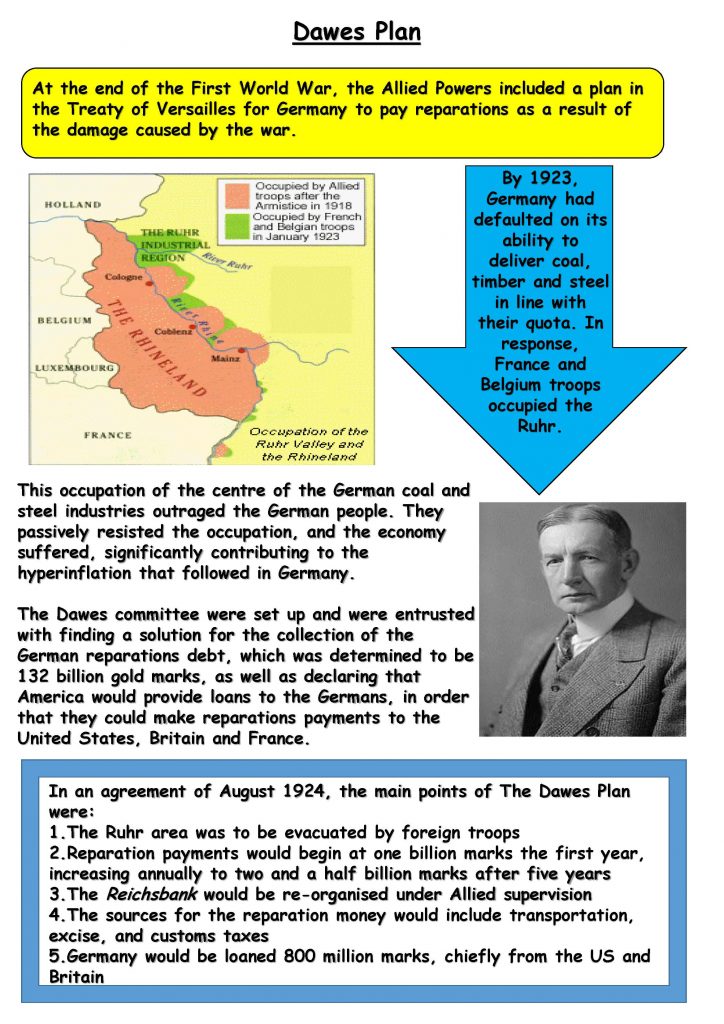
- The Dawes Plan provided short-term economic benefits to the German economy.
- It softened the burdens of war reparations
- Stabilized the currency
- Increased foreign investments and loans to the German market.However, it made the German economy
dependent on foreign markets and economies, and
therefore problems with the U.S. economy (e.g. the
Great Depression) would later severely hurt Germany as
it did the rest of the western world,which was subject to
debt repayments for loans of US dollars.
THE RENTENMARK
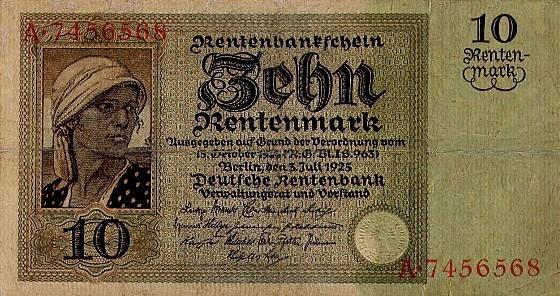
Stresemann introduced a new German Currency, the
Rentenmark replacing the worthless mark (backed
by US Gold)
This encouraged foreign investment in Germany’s
economy and led to an increase in new factories, industry,
infrastructure AND employment
Streseman and Foreign Policy
• Stresemann helped to end Germany’s isolation:
• Adhered to the Treaty of Versailles (policy of Fulfilment)
• Signing the Treaty of Locarno 1925
• Germany invited to join The League of Nations -1926
Treaty of Locarno
1925
The Locarno Treaties marked a dramatic improvement in the political climate of western Europe in 1924–1930. They promoted expectations for continued peaceful settlements, often called the “Spirit of Locarno”. This spirit was made concrete when Germany joined the League in 1926, and the withdrawal of Allied troops occupying Germany’s Rhineland. The Nobel Peace Prize was given to the lead negotiators of the treaty, going to Sir Austen Chamberlain in 1925 and jointly to Aristide Briand and Gustav Stresemann in 1926.
Historian Sally Marks says:
Henceforth the spirit of Locarno would reign, substituting conciliation for enforcement as the basis for peace. Yet for some peace remained a desperate hope rather than an actuality. A few men knew that the spirit of Locarno was a fragile foundation on which to build a lasting peace.
Hitler repudiated Locarno by sending troops into the demilitarized Rhineland on 7 March 1936.
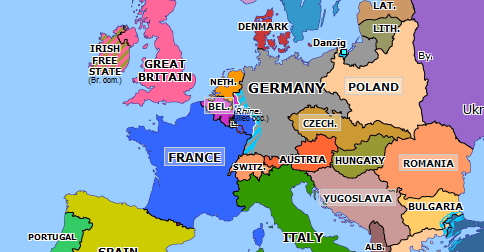
This policy of co-operation led to:
1. 1926-the first of the three Rhineland zones which had been placed under Allied military occupation by the Treaty of Versailles were evacuated
2. 1927-the Inter-Allied Control Commission to supervise
German disarmament was withdrawn.
3. 1928- Kellogg-Brian Pact
4. 1929 -Young Plan reduced German reparations to a figure of £2 billion and Repayments were to be made over a
period of 59 years.
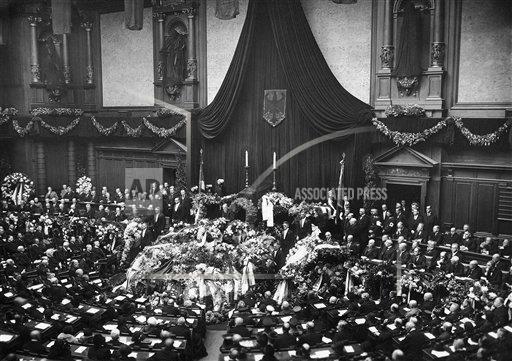
Gustav Stresemann died of a stroke in October 1929 at the early age of fifty-one, and is remembered for restoring German economic and political stability and as an advocate of peaceful solutions to complex international problems.